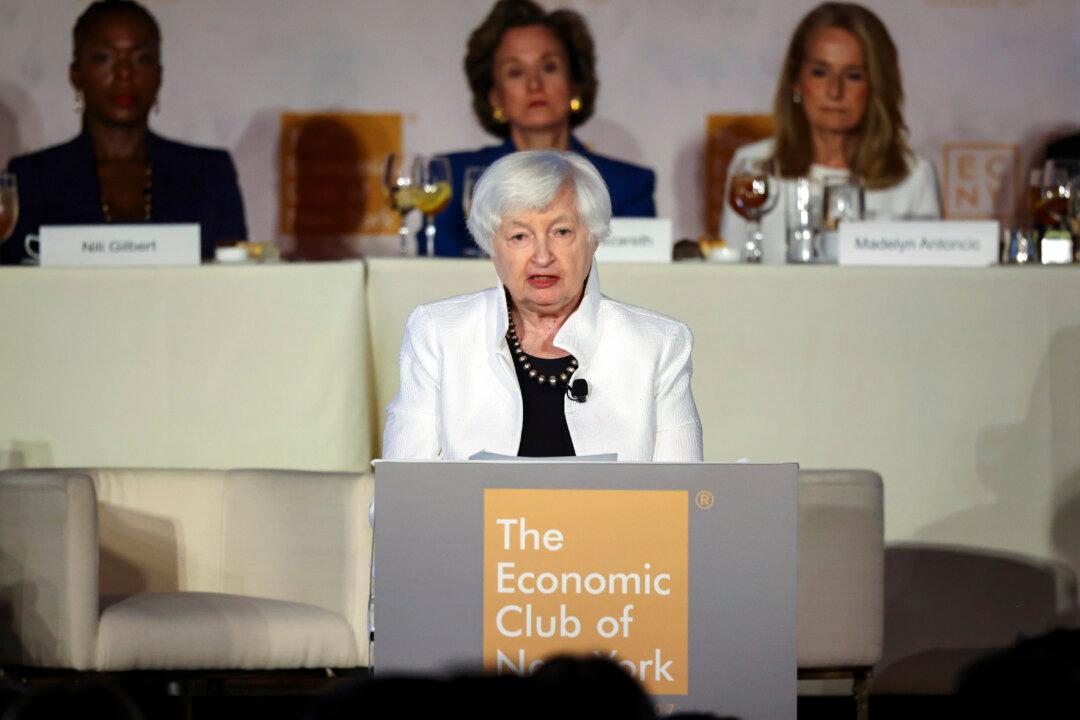China’s “overconcentrated supply chains” threaten U.S. jobs and the current administration’s enormous investments in the nation’s green energy industry, Treasury Secretary Janet Yellen says.
Speaking to the Economic Club of New York on June 13, Ms. Yellen warned that Beijing’s trade policies “may interfere significantly with our efforts to build a healthy economic relationship.”





